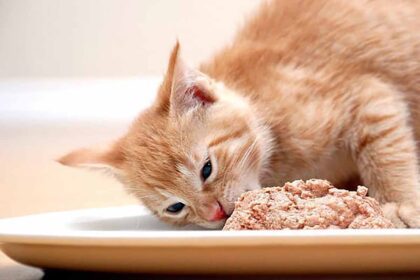Rabbits rely on a constantly moving digestive system to stay healthy. If they stop eating due to illness, surgery, or stress, their gut can shut down (GI stasis), leading to serious problems. Critical care, a special nutrient-rich food supplement, can be a lifesaver in these situations. It provides essential nutrients directly, keeping the digestive system functioning and promoting recovery.
While it’s not a replacement for a vet visit, critical care can be crucial for supporting your rabbit’s health at home until they’re back to eating normally. Watch for signs like inappetence or lethargy, and seek veterinary help if you suspect your rabbits need critical care.
What is Critical Care?
Critical care for rabbits is a specially formulated food supplement designed to provide essential nutrients when your bunny can’t eat on its own. This can happen during illness, recovery from surgery, or even due to dental issues.
Since a rabbit’s digestive system thrives on constant movement, even a short period of not eating can be detrimental. Critical care steps in to bridge this gap. These pre-made formulas are typically a powder mix containing ground hay, fiber sources, vitamins, and electrolytes. They are mixed with water to create a thick paste that can be syringe-fed directly to your rabbit.
Different brands and flavors of critical care are available commercially, allowing you to find one your rabbit might enjoy more, making the feeding process a little easier. While critical care isn’t a cure-all, it’s a valuable tool to keep your rabbit nourished and support their recovery until they’re back to munching on hay and veggies.
When is Critical Care Necessary For Rabbits?
Critical care becomes a vital tool in several situations where your rabbit’s natural eating habits are disrupted. Dental problems are a common culprit. Overgrown teeth can make chewing painful, leading to a reluctance to eat. Digestive issues like GI stasis, a condition where the digestive system slows down or stops completely, can also necessitate critical care. This can be caused by factors like hairballs, sudden diet changes, or bacterial imbalances.
Critical care is also often used during post-surgery recovery. Anesthesia and surgical procedures can leave rabbits feeling nauseous or disoriented, impacting their appetite. Supplying essential nutrients through critical care helps them regain strength and promotes healing. Additionally, rabbits experiencing stress or anxiety might stop eating altogether. Critical care can provide them with the necessary sustenance to weather stressful periods.
It’s important to remember that critical care is not a substitute for veterinary diagnosis and treatment. If you notice any signs your rabbit isn’t eating normally, like lethargy, reduced droppings, or abdominal pain, seeking immediate veterinary attention is crucial.
A vet can diagnose the underlying cause and develop a personalized treatment plan that might include critical care alongside other medications or dietary adjustments. Working with your veterinarian ensures your rabbit receives the most appropriate care and the best chance at a full recovery.
How to Use Critical Care For Rabbits
Preparation
Preparing critical care for your rabbit is a straightforward process, but getting the measurements and consistency right is key. The exact amount of critical care needed will depend on your rabbit’s weight. Most commercially available critical care products will include feeding guidelines on the packaging.
Generally, a good starting point is 10-15 ml of critical care formula per kilogram (2.2 pounds) of body weight, fed several times a day. For example, a 2 kg rabbit might require 20-30 ml of critical care per day, divided into smaller portions.
Once you have the recommended amount, measure out the critical care powder using the provided scoop or a clean measuring spoon. When it comes to mixing, warm water is your friend. Start by adding a small amount of warm water (not hot) to the powder.
The ideal consistency for critical care is similar to thick yogurt or runny pudding. It should be easily pushed through the syringe but not so watery that it dribbles out. Adding water a little at a time and mixing thoroughly will help you achieve the right texture.
Remember, it’s always better to err on the side of slightly thicker than too runny. If the mixture is too thick, your rabbit might struggle to swallow it, leading to choking or aspiration. Once you’ve achieved the perfect consistency, you’re ready to move on to the feeding techniques.
Feeding Techniques For Critical Care for Rabbits
There are two main methods for feeding critical care to your rabbit: syringe feeding and spoon feeding. The best method depends on your rabbit’s temperament and comfort level.
- Syringe Feeding:
This is the most common method for delivering critical care. Here’s a step-by-step guide:
- Gather your supplies: You’ll need a 1ml or 3ml syringe (without a needle), critical care formula mixed to the proper consistency, and warm water for lubrication.
- Position your rabbit: Wrap your rabbit gently in a towel to restrain them and minimize stress. One way is to lay them on a flat surface with the towel burritoed around their body, leaving their head exposed.
- Prepare the syringe: Fill the syringe with critical care, tapping it gently to remove air bubbles. Lubricate the syringe tip with a drop of warm water.
- Administer the critical care slowly: Hold the syringe near the corner of your rabbit’s mouth, aiming for the space between their teeth and cheek pouch. Do not force the syringe into their mouth. Allow them to open their mouth slightly and gently push a small amount of critical care (less than 1 ml at a time) onto their tongue.
- Let your rabbit swallow: Give them a moment to swallow before administering another small amount. Watch for signs of choking or discomfort and stop if necessary.
- Repeat the process: Continue feeding small amounts of critical care until the recommended daily amount is reached. Remember, it’s better to feed smaller portions more frequently throughout the day than overwhelm your rabbit with a large volume at once.
- Spoon Feeding:
This method might be suitable for rabbits comfortable taking critical care directly from a spoon.
- Use a small spoon: A small teaspoon or baby spoon works well.
- Offer the critical care: Dip the spoon into the mixture and gently place it near your rabbit’s mouth. If they seem interested, they might lick the critical care off the spoon.
- Be patient: Don’t force your rabbit to eat. Allow them to take the critical care at their own pace.
Important Considerations For Critical Care for Rabbits
- Regardless of the chosen method, prioritize your rabbit’s comfort and well-being.
- Feed small amounts frequently throughout the day, typically every 2-4 hours.
- Monitor your rabbit’s weight and droppings during critical care feeding.
- Consult your veterinarian for specific feeding instructions and guidance tailored to your rabbit’s needs.
Additional Tips and Considerations
Keeping Your Rabbit Comfortable:
- Warmth: Rabbits have sensitive respiratory systems. Maintain a warm environment (around 70-75°F) for your rabbit during critical care to help them stay comfortable and conserve energy.
- Hydration: Critical care can be slightly dehydrating. Offer fresh, clean water throughout the day and consider supplementing with electrolyte solutions (with your vet’s guidance) to ensure proper hydration.
Monitoring Your Rabbit:
- Syringe Feeding: Be aware of signs of choking or discomfort during syringe feeding. These might include pawing at their face, coughing, or head-throwing. If you observe any of these, stop feeding and consult your vet immediately.
- Weight and Health: Monitor your rabbit’s weight daily. A consistent or declining weight might indicate insufficient critical care intake. Additionally, pay attention to their overall health, including activity level, droppings, and behavior.
Seeking Veterinary Expertise:
- Critical care is not a substitute for veterinary care. If your rabbit needs critical care, it’s crucial to seek professional medical attention to diagnose the underlying cause and develop a personalized treatment plan.
- Your veterinarian is your best resource. They can provide specific feeding instructions based on your rabbit’s weight, health condition, and individual needs. They can also advise on any additional medications or dietary adjustments necessary for recovery.
NOTE: Remember, critical care is a valuable tool to support your rabbit’s health during challenging times. By following these tips and working closely with your veterinarian, you can increase your rabbit’s chances of a full and speedy recovery.
Conclusion
Critical care is a lifesaver for rabbits when illness, surgery, or dental issues disrupt their delicate digestive system. It provides essential nutrients directly, keeping their gut functioning and promoting healing. While critical care isn’t a replacement for veterinary attention, having it on hand allows you to support your rabbit’s health at home until they can return to eating normally. If you notice any signs of reduced appetite, lethargy, or digestive problems, consult your veterinarian promptly. With early intervention and proper care, your rabbit can overcome these challenges and hop back to a healthy life.
FAQs And Additional Resources
Q: My rabbit hates the syringe! What can I do?
A: Some rabbits dislike syringe feeding. Try offering critical care from a spoon first. If that doesn’t work, consult your vet. Warming the syringe slightly or offering a flavored critical care formula might improve acceptance.
Q: How often should I clean the syringe?
A: Rinse the syringe thoroughly with warm water after each feeding. Disinfect it daily with a mild solution recommended by your veterinarian.
Q: How long will my rabbit need critical care?
A: The duration depends on the underlying condition. Your veterinarian will advise on the appropriate feeding timeline for your rabbit’s specific needs.
Resources for Rabbit Care and Critical Care Techniques
- House Rabbit Society: Rabbit Org Foundation
- Rabbit Welfare Association & Fund: Rabbit Welfare
- MedRabbit – Critical Care Feeding: Bunny Lady
(Note: Consult your veterinarian before using any medications or supplements mentioned on this website)













